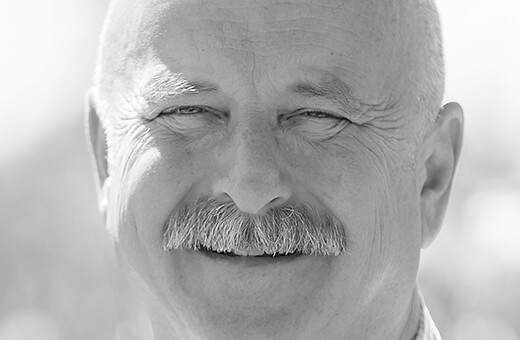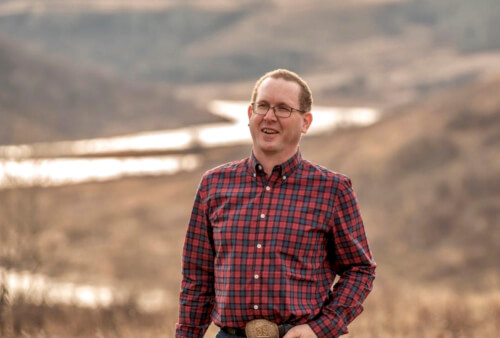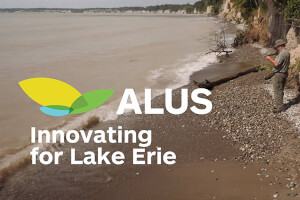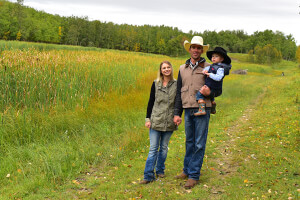Bryan Gilvesy
ALUS
Norfolk County, ON

Sector Impact
Environment & Sustainability
Agriculture
Climate Change
FARMERS AT THE CENTRE OF ENVIRONMENTAL STEWARDSHIP
The Challenge: Any meaningful land conservation initiatives need the support and active participation of farmers and ranchers. Too often, however, when traditional conservation efforts take farmers and ranchers into account at all, they tend to take a zero-sum, “protectionist” approach — pitting the environment against the economy and downplaying agricultural workers’ inherent creativity, ingenuity, and inherent motivation as environmental and community stewards.
The Solution: With ALUS, Bryan Gilvesy is reimagining relationships between farmers and conservationists — for everyone’s benefit. ALUS supports Canadian farmers and ranchers as they develop and deliver “ecosystem services” on their lands and in their communities. The results? Increased stability for farmers, a cleaner and healthier environment, and a cooperative, creative, and sustainable model for environmental stewardship.
A farmer-centric approach to land conservation
Want to create healthy landscapes? Get farmers and ranchers on board.
That’s the brilliantly simple concept behind ALUS, which harmonizes the demands of agriculture with the health and functionality of the natural environment. Farmers are the single largest group of landowners in North America, points out ALUS CEO — and 2021 Ashoka Fellow — Bryan Gilvesy. “They’re therefore in a unique position to provide solutions to environmental challenges like climate change or biodiversity loss.”
Historically, governments and conservation agencies have incentivized farmers and ranchers to protect pieces of their land, making them unusable. Or, agencies impose penalties for not complying with environmental regulations. Neither approach has done a particularly good job of fostering environmentally sustainable farming practices — let of enabling positive relationships between agencies and agricultural workers.
ALUS — the name is an acronym for “Alternative Land-Use Services” — is changing that. The organization, which currently operates in six provinces and 31 communities, puts farmers at the centre of agricultural sustainability efforts. It trusts these landowners to identify, initiate, and maintain environmental projects on their own land — for example, restoring a wetland on marginal or uneconomic parcels — and supports them financially, technically, and practically throughout the process. Ranchers and farmers are rewarded to maintain or enhance the natural ecosystems (like watersheds and wetlands) already on their land, and to actively produce new ones.
Currently, more than 1,100 farmers and ranchers actively take part in ALUS projects on more than 32,000 acres of land in Canada. That’s 32,000 acres in the service of cleaner air, cleaner water, carbon sequestration, greenhouse gas reduction, natural habitat restoration, erosion control, flood mitigation, pollinator support, and wildlife habitat — to name a few.
What’s more, the ALUS approach helps to create multifunctional farms, where — in addition to food and fibre — ecosystem services are part of the revenue stream. Under Bryan’s leadership, ALUS has created the New Acre, a credit that allows companies and governments to invest in nature-based projects as a way of furthering their own environmental-social-governance (ESG) and greenhouse-gas-reduction goals. Those investments flow back to farmers and ranchers, who are paid per acre for the projects they implement.
As a third-generation tobacco farmer and present-day cattle rancher, Bryan actively embodies the ALUS approach: His Y U Ranch in Tillsonburg, Ontario, is an official demonstration site for the organization. Bryan combines his agricultural experience with his business acumen; he studied at the Richard Ivey School of Business at Western University in London, Ontario, where he is currently Executive in Residence for Agriculture and Sustainability. Under Bryan’s leadership, ALUS has grown and thrived — much like the thousands of acres of land under its stewardship.



